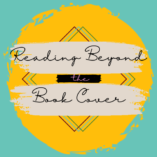I usually don’t reach for historical fiction, let alone one of the American slave narrative variety. I’m African American, and my proximity to slavery in America calls for an obvious sensitivity level to the content and subject matter discussed in books written from a slave’s perspective.
A More Perfect Union is a 2020 historical fiction novel inspired by the union of the author’s great-great-grandparents, an Irish immigrant and an African American slave. It was surprising and had its challenges, but overall proved to be an inspiring love story, supporting the notion that Love knows no bounds.
Huf constructs a story centered around Sarah, a slave recently bought by a self-proclaimed Christian family. After being purchased at the auction block, Sarah interacts with other characters that we follow the perspectives of, and in mentioning this, it’s through them, we experience her. The multiple perspectives acted as the vehicle for the plot and it’s through them that we witness the trajectory of Sarah’s life veering from one scenario to the next. For me, this is why I felt detached from her but interested in the story.
Characters can usually be a hit or miss in most stories. In this one, I was initially annoyed with everyone. Any of their actions or responses would agitate me. I’m pretty sure it’s because I kept putting myself in each character’s position and expecting them to operate as if they are of the same mind as myself. Once I got past that, I was able to appreciate each character’s motives.
The story opens up by introducing us to Henry, an Irish immigrant, who has newly arrived in America. He has fled his homeland due to The Great Famine and views America as a step up from being in Ireland. To survive in America, he makes great efforts to disguise his accent, and change his last name, as there is discrimination in the US against immigrants, regardless of their skin color. Eventually, he finds work, but his employment is shortlived due to an altercation.
While looking for another job, he crosses paths with Sarah, a house slave, bought and newly appointed to the Jubilee Plantation. She’s known for being an herbalist of sorts and is well-liked by her Master and his wife and most of the Jubilee Plantation slaves that haven’t been consumed by Maple. Add Henry to the list of people that Sarah gets on well with and you can quickly see how this becomes a problem. Henry is a white man and he’s got eyes for more than blacksmithing work at the Jubilee Plantation.
Maple and others on the plantation are watching this relationship develop and expectantly react with a mixture of inquisitiveness, anger, and caution. Some see their budding relationship as an opportunity.
It’s through the lens of these three characters, Sarah, Henry, and Maple that we experience the complications that are inherent to pursuing a forbidden relationship in 1840s America. We also see how vindictiveness can be all-consuming and begets short-sightedness, for the instant gratification of doing someone ‘dirty’ is more of a focal point than most would warrant it to be.
Although frustrating at times, I enjoyed A More Perfect Union. My only wish is that the characters be more fleshed out. Their characterizations felt a little surface. Other than that, it was a new-to-me spin on the slave narrative that I’d like to read more from. The varying perspectives was refreshing and I appreciate the author for highlighting how religion was a tool in support of slavery. This book earned many nods from me.





